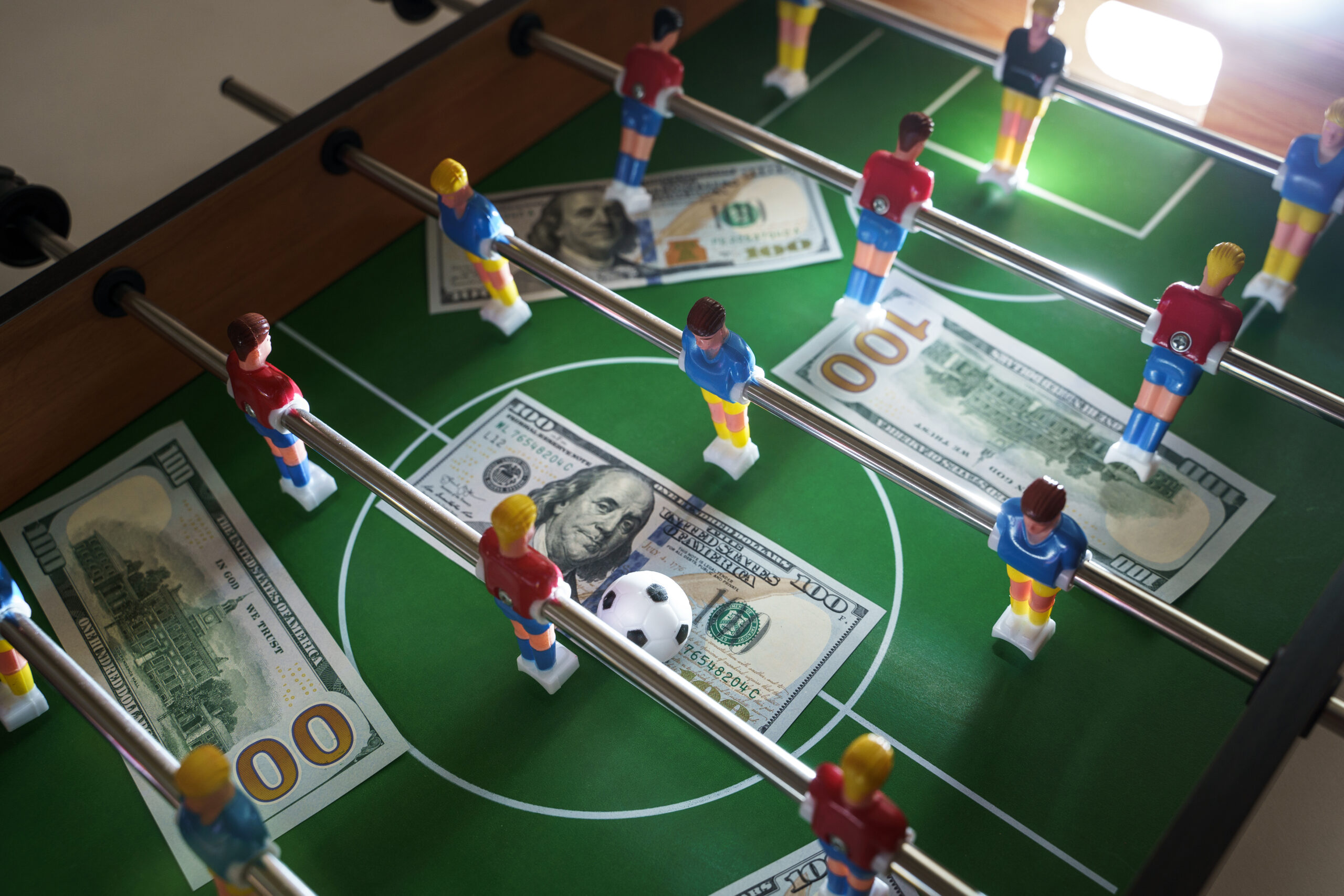College athletes have long been debated regarding compensation for their athletic abilities. Many argue that these athletes bring significant school revenue and should be paid accordingly. In contrast, others believe that the value of a college education should be compensated enough. The discussion around this issue continues to evolve, with some states passing legislation to allow college athletes to profit from their name, image, and likeness. Let’s look at the arguments for and against paying college athletes and the current state of this controversial issue.
Step 1: As of now, college athletes do not get paid for playing sports. They are considered amateur athletes and are not allowed to receive payment for their athletic abilities.
Step 2: However, there has been ongoing debate and discussion about whether college athletes should be paid, especially considering the significant revenue that college sports generate for universities and the NCAA.
Step 3: Some argue that college athletes should receive compensation for their time and efforts, while others believe that the current system of scholarships and other benefits is sufficient.
Step 4: It’s important to stay informed about this topic as it evolves and potentially changes.
The NCAA rules on college athlete compensation
College athlete compensation has been a hotly debated issue for years. With the NCAA recently changing its rules to allow college athletes to profit from their name, image, and likeness, many are wondering what this means for the future of collegiate sports. In this post, we will explore the current NCAA rules on college athlete compensation and discuss the implications of these changes. We will also examine the potential impact on the athletes and college sports landscape.
Step 1: The NCAA has historically prohibited college athletes from receiving compensation beyond their scholarships and cost of attendance. However, recent developments have led to changes in these rules.
Step 2: Name, Image, and Likeness (NIL) rights: As of July 2021, college athletes can now profit from their name, image, and likeness. They can earn money from endorsements, sponsorships, and other opportunities.
Step 3: State legislation: Some states have passed laws allowing college athletes to be compensated for their NIL rights, regardless of NCAA rules. This has created a patchwork of regulations across the country.
Step 4: Ongoing discussions: The NCAA and various stakeholders continue to debate and negotiate the rules around compensation for college athletes. Athletes and those involved in college sports need to stay informed about the latest developments in this area.

Arguments for and against paying college athletes
College athletes have long been a topic of debate regarding compensation. On one hand, they bring in significant revenue for their universities and the NCAA through their performances. On the other hand, they are considered amateur athletes and are not paid for their efforts. This post will explore the arguments for and against paying college athletes, shedding light on the complexities of this controversial issue.
Step 1: Arguments for paying college athletes:
– College athletes bring in significant revenue for their schools through ticket sales, merchandise, and television contracts.
– Many college athletes come from low-income backgrounds and struggle to make ends meet while dedicating much time to their sport.
– Paying college athletes could reduce the risk of corruption and exploitation, as they would be fairly compensated for their contributions to the athletic program.
Step 2: Arguments against paying college athletes:
– College athletes already receive scholarships and other benefits, such as access to top-notch training facilities and coaching, which can be considered as compensation for their efforts.
– Paying college athletes could create an imbalance between different sports programs, with larger schools being able to afford higher salaries for their athletes, potentially leading to a further divide in the competitiveness of college sports.
– Introducing payment for college athletes could blur the line between amateur and professional sports, potentially impacting the integrity and spirit of collegiate athletics.
The impact of paying college athletes on recruitment and competition
College athletes have long been debated regarding compensation for their athletic abilities. This blog post will explore the potential impact of paying college athletes on recruitment and competition. We will delve into the arguments for and against paying college athletes and the potential consequences for the recruitment process and overall competition within collegiate sports. By examining these factors, we hope to provide a comprehensive understanding of the potential impact of paying college athletes.
Step 1: The impact of paying college athletes on recruitment and competition is highly debated. Paying college athletes would create a more competitive recruiting environment, as top athletes would be more likely to choose schools that offer financial incentives. Others believe paying college athletes would create an unfair advantage for certain schools and diminish the amateur nature of college sports.
Step 2: College athletes still need to receive direct payment for their participation in sports. However, they may receive scholarships, stipends, and other forms of financial aid. The debate over whether college athletes should be paid continues to be a hot topic in sports and education.
Step 3: It is important to consider the potential consequences of paying college athletes, including the impact on recruitment and competition. Proponents of paying college athletes argue that it would create a more level playing field and allow athletes to benefit from their talents. However, opponents raise concerns about the potential for corruption and the impact on the amateur status of college sports. Ultimately, the impact of paying college athletes on recruitment and competition is a complex issue that requires careful consideration and discussion.
The potential solutions for compensating college athletes
College athletes have long been a topic of debate regarding compensation for their efforts on the field or court. With the NCAA bringing in billions of dollars in revenue each year, many believe these athletes should be compensated for their hard work and dedication. In this post, we will explore the potential solutions for compensating college athletes, including the arguments for and against paying them and alternative forms of compensation that could be implemented. We will also discuss the current state of college athlete compensation and the potential impact of future changes.
Step 1: Allow athletes to profit from their name, image, and likeness: This would allow college athletes to earn money from endorsements, sponsorships, and other opportunities from their athletic abilities.
Step 2: Provide stipends for living expenses: College athletes could receive stipends to cover living expenses while attending school and participating in their sport.
Step 3: Create a revenue-sharing model: Colleges and universities could share revenue from athletic events, merchandise sales, and media rights with the athletes.
Step 4: Implement a salary or wage system: Some have suggested that college athletes should receive a salary or hourly wage for the time they dedicate to their sport, similar to how professional athletes are compensated.
Step 5: Offer additional benefits and resources: Colleges could provide additional benefits such as healthcare coverage, academic support, and career development resources to compensate college athletes for their contributions to the athletic program.
The current state of college athlete compensation and any recent developments.
The current state of college athlete compensation has been a topic of much debate and discussion in recent years. Many wonder if college athletes should be paid for their contributions to their respective sports teams. In this post, we will explore the arguments for and against paying college athletes and any recent developments in this ongoing issue.
Step 1: The current state of college athletes’ compensation is that they still need to receive direct payment for playing sports. However, there have been recent developments in this area.
Step 2: Recent developments include the NCAA allowing college athletes to profit from their name, image, and likeness (NIL). Athletes can now earn money from endorsements, sponsorships, and other opportunities.
Step 3: Some states have also passed legislation allowing college athletes to be paid for their athletic abilities, although this is still controversial, and not all states have adopted these laws.
Step 4: It’s important to stay informed about the ongoing discussions and changes in college athlete compensation to understand current affairs.
Some Frequently Asked Questions
1. Do college athletes get paid?
Currently, college athletes do not receive direct monetary compensation for their participation in sports. However, there has been ongoing debate and discussion about whether or not college athletes should be paid for their contributions to their respective sports programs.
2. Why don’t college athletes get paid?
The current NCAA rules prohibit college athletes from receiving payment for their athletic abilities to maintain the amateur status of college sports. This rule is meant to uphold the integrity and fairness of college athletics.
3. Do college athletes receive any benefits or perks?
College athletes may receive scholarships, stipends, and other forms of financial aid to cover the costs of their education, living expenses, and other related expenses. They may also receive access to training facilities, coaching, and other resources to support their athletic development.
4. What are the arguments for paying college athletes?
Proponents of paying college athletes argue that these individuals bring in significant revenue for their universities and the NCAA and should be compensated for their contributions. They also argue that many college athletes come from low-income backgrounds and struggle to make ends meet despite the demands of their athletic commitments.
5. What are the arguments against paying college athletes?
Opponents of paying college athletes believe that providing direct monetary compensation could compromise the amateur status of college sports and lead to unfair advantages for certain teams or athletes. They also believe that the current system of scholarships and other benefits adequately supports the needs of college athletes.
6. Are there any proposed changes to the college athletes’ payment rules?
There have been ongoing discussions and proposed legislation at the state and federal levels to allow college athletes to profit from their name, image, and likeness (NIL). This would allow them to receive compensation for endorsements, sponsorships, and other opportunities outside their college sports activities.
7. How do college athletes feel about the issue of payment?
Opinions among college athletes vary, but many desire fair compensation for the time, effort, and sacrifices they make to compete in their sports. Some athletes have been vocal advocates for changes to NCAA rules to allow for greater financial opportunities.
8. What can individuals do to support college athletes in this issue?
Individuals can educate themselves about the complexities of this issue and advocate for fair treatment and opportunities for college athletes. They can also support organizations and initiatives that seek to address the challenges and concerns facing college athletes in the current system.
Conclusion
The debate over whether college athletes should be paid is a complex and ongoing issue. While some argue that athletes bring in significant revenue for their colleges and should be compensated accordingly, others believe that the opportunity to receive free education and other benefits is sufficient compensation. Ultimately, it is a matter of ongoing discussion and consideration at the collegiate level.









